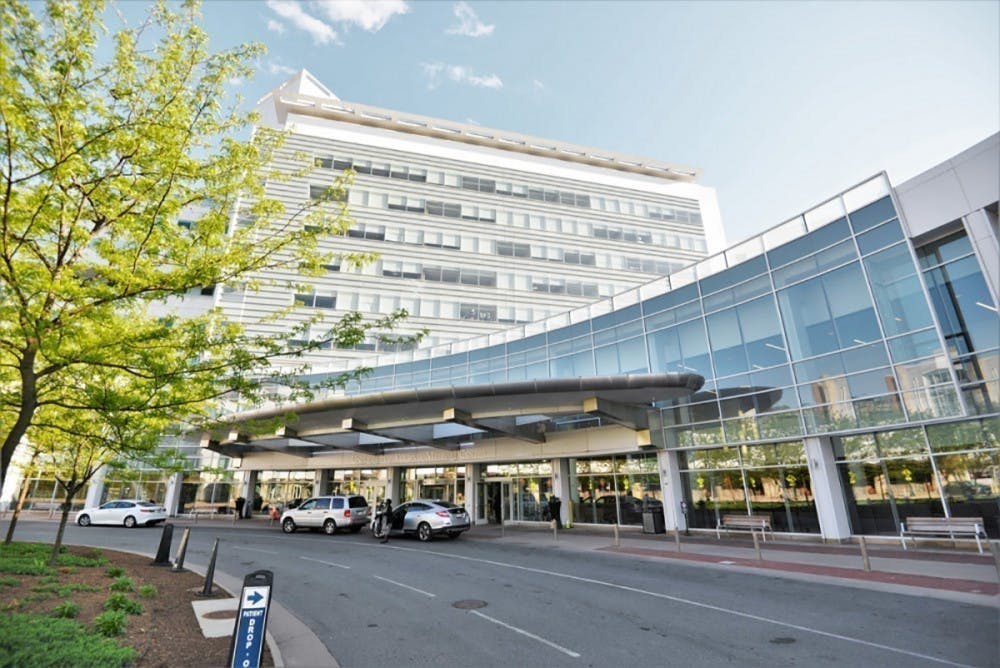In a show of success in the fight against the novel coronavirus, the antiviral drug remdesivir has been found to accelerate the recovery and improve the survival of COVID-19 patients, according to a trial conducted at U.Va. Health in conjunction with the National Institute of Allergy and Infectious Diseases, a part of the National Institutes of Health.
Preliminary results indicate that patients who took remdesivir recovered 31 percent faster than those who took the placebo, shortening the median recovery time from 15 days to 11 days. Additionally, the drug was found to increase survival, as the group receiving remdesivir had a mortality rate of 8 percent while the group receiving placebo had a rate of 11.6 percent.
“This is the first clinical trial to demonstrate an effective treatment for COVID-19,” said Dr. Patrick Jackson, the principal investigator of the trial at the University, in a U.Va. Health press release. “Remdesivir will be one tool we can use to turn the tide of this pandemic.”
Remdesivir — which is produced by Gilead Sciences, Inc. — was a drug originally created to treat the Ebola and Marburg viruses. However, subsequent testing suggested the drug had the ability to treat viruses with similar mechanisms of replication, including members of the coronavirus family of viral illnesses that result in respiratory tract infections. In animal studies of Mers-CoV from February, the antiviral drug was found to block the enzyme needed for the virus to replicate, and researchers hope its effect will be similar on COVID-19.
The trial began in February at the University of Nebraska Medical Center in Omaha, and University researchers became involved on April 1.
Testing in the trial was composed of two patient groups with severe cases of COVID-19 — one group was given remdesivir and the other a placebo, a fluid that resembles remdesivir but does not offer any of its physiological benefits. Patients were randomly assigned to either the experiment or control group then monitored as the drug was administered over a period of 10 days. A patient was considered to have recovered if they were well enough to leave the hospital or return to normal activity levels.
Only preliminary results from the study have been released as of press time, but the NIH plans to publish a second, more comprehensive report in the future. It did not provide an expected timeline for this release.
Dr. Taison Bell, a critical care and infectious disease specialist at the University, believes this trial is a step in the right direction for the University and Charlottesville communities.
“I’m extremely proud [of] the clinical research staff, pharmacists and others who helped us launch this trial in record time,” Bell said in a U.Va. Health press release. “Because of their efforts, we were able to get a win for our community in the fight against COVID-19.”
Dr. Anthony Fauci, NIAID director and the U.S. government’s top infectious disease expert, also sees promise in the results of the clinical trial.
“The data shows that remdesivir has a clear-cut, significant positive effect in diminishing the time to recover," Fauci said to White House press reporters Wednesday. “What it has proven is that a drug can block this virus.”
The U.S. Food and Drug Administration is expected to grant the drug emergency-use authorization in the next few days, and Gilead has already been in “sustained and ongoing” talks with the FDA about making the drug available to patients once approval is granted. Until then, it will remain accessible to treat COVID-19 patients only through approved clinical trials or compassionate care for critically-ill patients.
Nevertheless, the results of this trial spell promise for its future use in fighting this pandemic.







